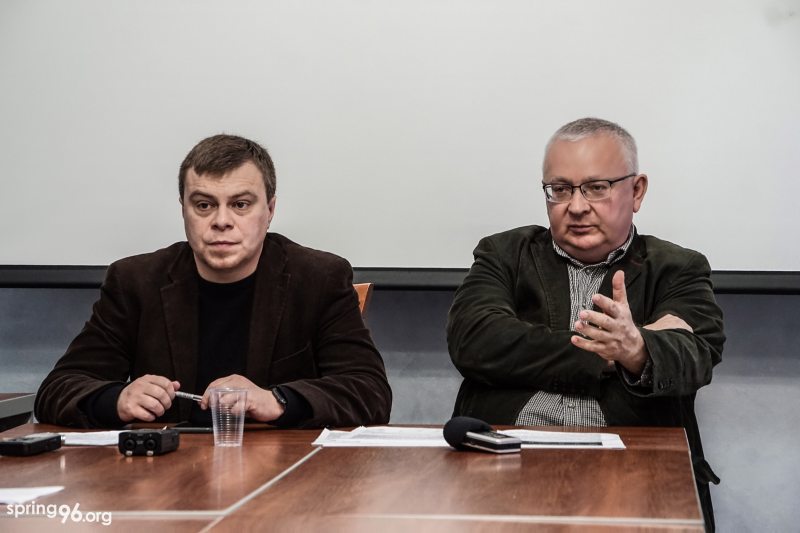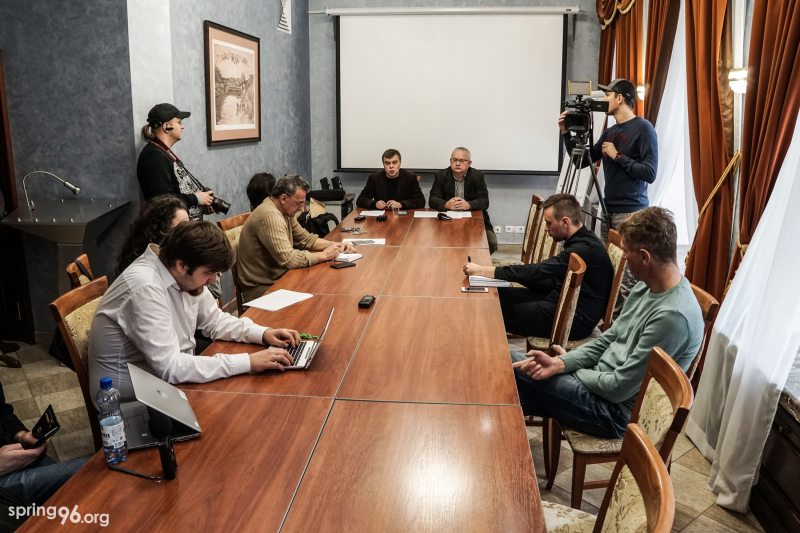Domestic observers report lack of progress in nomination and registration of candidates

The nomination and registration of candidates were not marked by any significant differences as compared to the previous parliamentary elections, concludes an interim report by the nation-wide campaign “Human Rights Defenders for Free Elections”. The findings were presented today at a press conference in Minsk.
Summing up the results of monitoring the first phases of this year’s parliamentary elections, campaign coordinator Uladzimir Labkovich notes that the elections retained all of the negative things that were observed during previous campaigns, the presidential election of and 2015 and the parliamentary elections of 2016.
“When it comes to the territorial election commissions, we continue to observe a small fraction of nominees from political parties, and their involvement in the process continues to diminish,” Labkovich said at the press conference. “And it’s not only the opposition, but all the fifteen registered parties. As few as 25% nominated their representatives to territorial commissions. The rest are “regular citizens” or nominees of “labor collectives”.”
Representatives of the five major pro-government public organizations (Youth Union, “Belaya Rus”, the Federation of Trade Unions, the Peace Fund and the Women’s Union) constitute 93.6% of the total number of NGO members. This is evidence of the general discriminatory approach to the formation of the TECs. In general, the election law does not provide any criteria for the formation of commissions. As a result, the process is run exclusively by local authorities, which turns elections into an administrative procedure.
Uladzimir Labkovich stresses the deterioration of the situation with the formation of precinct election commissions in comparison to previous years. The observers have not witnessed such meager representation of the opposition in the PECs since 2008, the year the domestic observation was launched.
In particular, the opposition nominated put forward 4.2% of the total composition of election commissions, and they are represented by as few as 21 people, accounting to only 0.031%. This is particularly striking against the background of the five pro-government NGOs occupying 97% of the seats.
How could it happen? A few days in advance, local authorities hold closed-door meetings, with no invited observers, where they approve that the commissions consist of only 13 people (the minimum amount stipulated by the law). Then a formal meeting is held, where observers witness the officials vote against all “outsiders” (in case any of seats are contested) and say yes to the list of loyal candidates. To create a semblance of pluralism, one of the officials votes for the challenger.
Another issue of concern is the formation of election commissions under what the observers call “employment principle,” when the commissioners are representatives of the same organization, most often — school. Thus, the authorities can maintain control over the activities of the commission. The law provides for numerous loop-holes to demonstrate diversity, as educators officially represent trade unions, regular citizens, or even parties or associations. For example, polling station commission No. 9 in Barysaŭ (located in school No. 2) consists of 13 people, of which 100% are the school staff. Similar situations were reported from around the country.
The parliamentary elections of 2019 are largely a repetition of the methods and practices that were commonplace during the elections of previous years, adds Aleh Hulak, leader of the Belarusian Helsinki Committee.
“Many of our observers were denied the opportunity to observe the procedure of verification of documents submitted for registration,” Hulak said. “Worse, many contenders were not allowed to see the materials that were found invalid. That is, they were not given the opportunity to see exactly which signatures were rejected and why, which means that they were effectively deprived of the opportunity to appeal those rejections. As before, what we see is that this registration process is essentially eliminating disloyal contenders.”
Aleh Hulak notes that the registration procedure looks like a set of administrative hurdles, allowing signatures to be rejected on formal grounds, rather than for being fake. In many cases, no one doubts that the signatures were actually put by the voters.
Unfortunately, the existing procedures do not take into account the fact that voters have the right to nominate candidates, while the candidates nominated by the voters have the right to run. The essence of the process has so far been ignored by the existing procedures, as long as the procedures permit disqualifying for formal reasons, which does not correspond to the very meaning of the Electoral Code and constitutional guarantees, too.


